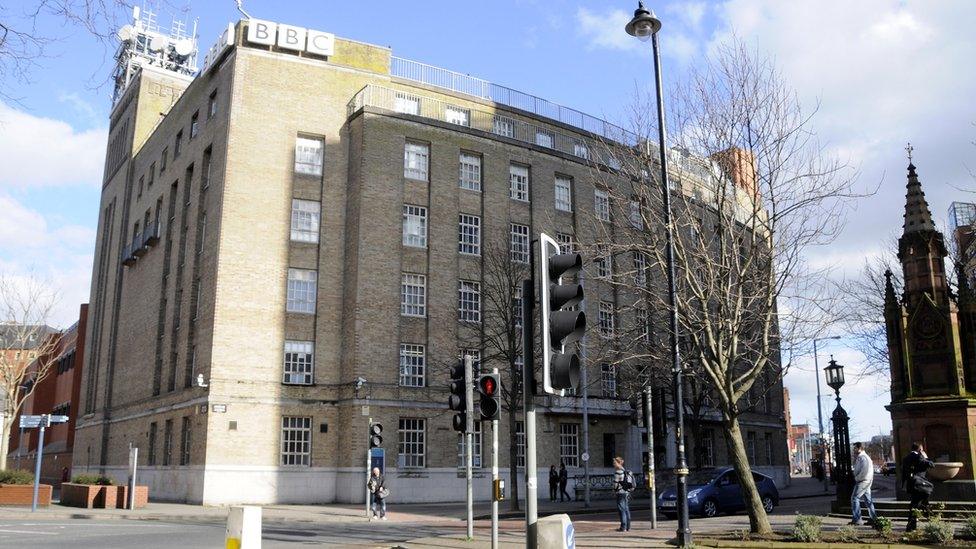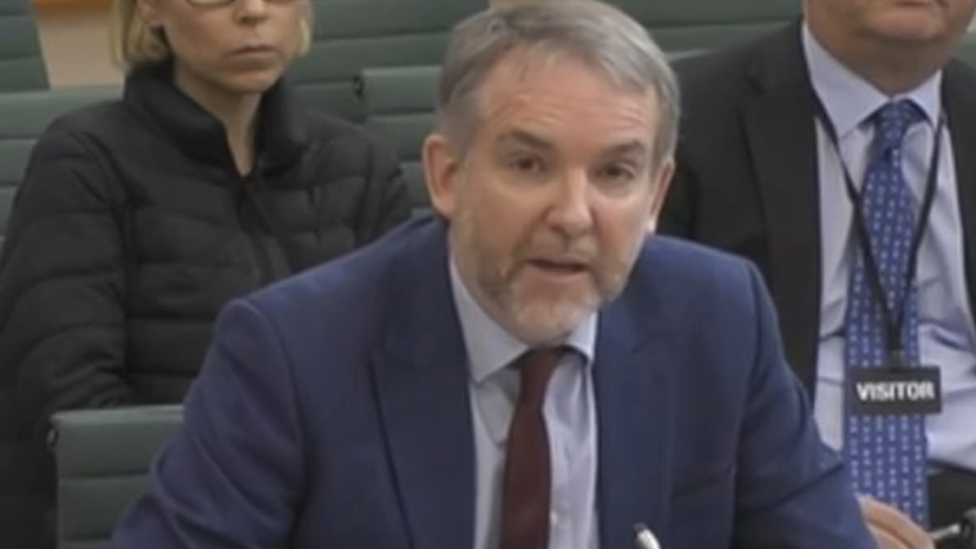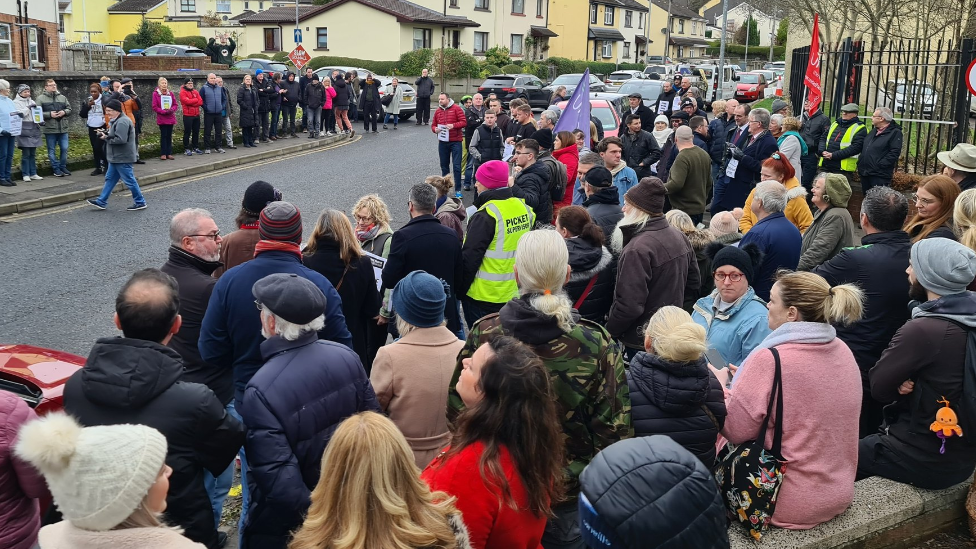BBC: Rise in people in NI who view broadcaster positively
- Published

The BBC's main Northern Ireland base is at Broadcasting House in Belfast
The number of people in Northern Ireland who view the BBC "positively" has risen, according to the broadcasting watchdog.
Ofcom said its research showed almost two-thirds of people (62%) rated the BBC positively in 2021/22 compared to 55% in 2020/21.
The details come from Ofcom's annual report on the BBC for 2021/22.
It added that despite tough financial choices, the BBC's "digital-first" move must not leave local audiences behind.
On Tuesday, BBC Northern Ireland announced plans to close 36 posts in an attempt to make £2.3m of savings and invest more money in online services.
Proposals to cut the daily breakfast news programme and news bulletins on Radio Foyle have been criticised.
Ofcom said it was in touch with the BBC to "seek more details about its planned changes to news and current affairs in Northern Ireland".
"If we have concerns, we will take these into account in our work to update the BBC's Operating Licence," it added.

The BBC's Director of Nations Rhodri Talfan Davies describes the propsals to cut the BBC Radio Foyle Breakfast programme as "difficult"
The BBC's director of nations has described the proposals to cut the BBC Radio Foyle Breakfast programme as "difficult".
Rhodri Talfan Davies was questioned on the BBC Northern Ireland proposals by MPs at the House Of Commons digital, culture, media and sport committee on Thursday.
"What I would say specifically in the case of Foyle is that it has always been an opt-in service to Radio Ulster," Mr Davies told the committee.
"What we have committed to is maintaining three daily programmes specifically to the local area of Foyle, which is a population area of just over 100,000 I think.
"It would see us maintaining a half hour news programme and the two major afternoon strands, but I recognise in terms of the breakfast news that is a difficult decision."
Mr Davies also accepted that the BBC would be losing important jobs of "quality" in an area like Foyle with these proposals.
'Primary news source'
Ofcom is responsible for overseeing the BBC's performance and responding to audience concerns.
Every year it publishes a report on the BBC's performance which includes some Northern Ireland-specific information.
Overall, Ofcom found that the BBC remains the UK's primary source of news, with around three-quarters of adults using it for news.
In Northern Ireland, the most commonly used sources of news by adults were the BBC website and BBC One.
The number of people in Northern Ireland who viewed the BBC positively had also risen since Ofcom's 2020/21 report.
But audiences in Northern Ireland also rated the BBC overall as below average when it came to featuring "the nation where I live" and providing "content that is relevant to me".

Protestors gathered outside the Radio Foyle building on Wednesday
The watchdog also said that, across the UK, viewers and listeners from lower-income backgrounds or with disabilities were less satisfied with the BBC.
The BBC was also a "less established" part of the lives of younger people.
"Younger groups can feel that the BBC is aimed at older generations; they use the BBC's news services less, although they do use and appreciate its coverage when checking the validity of stories they have seen on social media," Ofcom said.
'Period of significant change'
The watchdog's report also said that the BBC was facing increasing challenges and the need to find savings, but it would scrutinise how it was serving local audiences.
"The BBC needs to balance any changes with its duty to deliver locally relevant programming that is of particular interest to audiences in the nations or regions," Ofcom said.
"In line with wider market trends, the overall reach of the BBC's broadcast channels has continued to decline, particularly to younger audiences, while use of its online services such as BBC iPlayer and BBC Sounds is growing."
But the regulator added that as the BBC sought to make changes, "it is important that it continues to provide a breadth of news and information covering local, regional, national, UK and global issues for all UK audiences".
"The BBC is currently operating in a period of significant change," it continued.
"Audience behaviours continue to shift rapidly, and at the same time the BBC is coming under greater financial pressure.
"We recognise that the BBC will have to make some difficult decisions as it seeks to respond to these challenges.
"In doing so, it is critical that it is transparent about its plans and how it will deliver its remit."